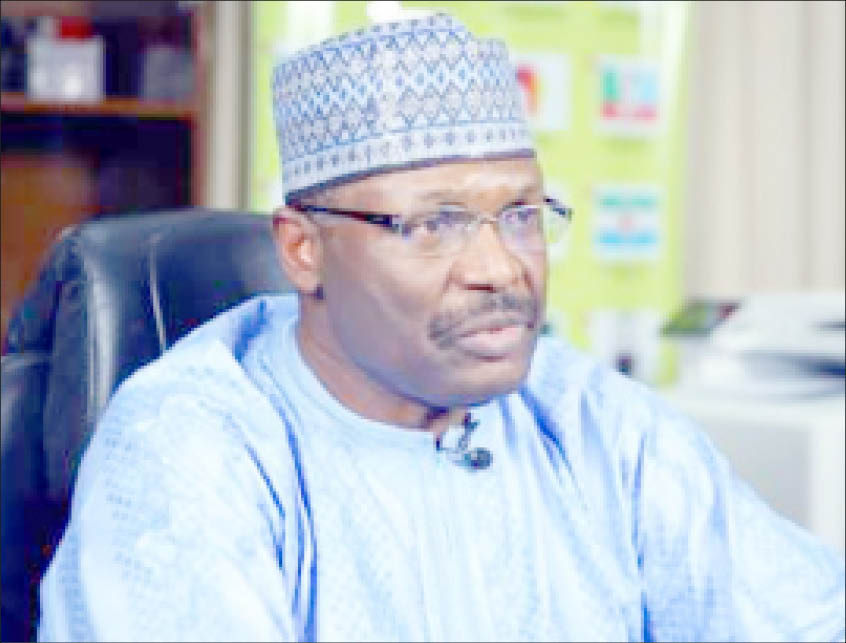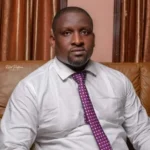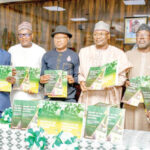By Abbas Jimoh, Muideen Olaniyi & John C. Azu
The Independent National Electoral Commission (INEC) last night postponed the Saturday, March 11, governorship and state assembly elections to March 18, 2023.
The commission announced the postponement of the elections at the end of its management meeting, chaired by the chairman, Professor Mahmood Yakubu, in Abuja.
The commission, in a statement issued at 11:20 pm by its National Commissioner and Chairman, Information and Voter Education Committee, Festus Okoye, said the postponement was a result of the litigation against the electoral body.
He said that following Wednesday’s ruling by the Presidential Election Petition Tribunal (EPT) on the reconfiguration of the BVAS used for the presidential election held on February 25, 2023, the commission met to assess its impact on its preparations for the governorship and state house of assembly elections scheduled for March 11, 2023.
NIGERIA DAILY: How Governors are desperately seeking for help
Musa Musawa: A pioneer progressive exits the stage
He recalled that on March 3, 2023, the Presidential EPT gave an ex parte order for some political parties to inspect materials used for the presidential election, including the forensic inspection of over 176,000 BVAS used in the election, which are located in INEC LGA offices across the country.
“The commission approached the tribunal to reconsider the order, given that the BVAS systems were to be deployed for the governorship and state assembly elections and that the lack of a clearly defined timeframe for the inspection could disrupt the commission’s ability to conduct the outstanding elections.
“For instance, the BVAS can only be activated on the specific date and time of an election. Having been used for the presidential and National Assembly elections on 25th February 2023, it is necessary to reconfigure the BVAS for activation on the date of the governorship and state assembly elections.
“While the ruling of the tribunal makes it possible for the commission to commence the preparation of the BVAS for the governorship and state assembly elections, it has come far too late for the reconfiguration to be concluded.
“Consequently, the commission has taken the difficult but necessary decision to reschedule the governorship and state assembly elections which will now take place on Saturday, 18th March 2023.
“By this decision, campaigns will continue until midnight of Thursday 16th March 2023 i.e. 24 hours before the new date for the election.
“This decision has not been taken lightly but it is necessary to ensure that there is adequate time to back up the data stored on the over 176,000 BVAS machines from the presidential and national assembly elections held on 25th February 2023 and then to reconfigure them for the governorship and state assembly elections.
“This has been the practice for all elections, including the period when the commission was using the Smart Card Readers (SCRs),” Okoye said.
Commission gets nod to reconfigure BVAS
Meanwhile, the Court of Appeal in Abuja yesterday approved the application by the INEC to reconfigure the Bimodal Voter Accreditation System (BVAS) used for the February 25 presidential election. A three-member panel of justices led by Justice Joseph Ikyegh ruled that the reconfiguration was to enable the commission to conduct the March 11 governorship and state assembly elections.
The Labour Party (LP) presidential candidate, Peter Obi, had sought access to inspect, scan and make photocopies of sensitive election material used for the conduct of the election.
The panel, however, refused Obi and LP’s relief to restrain INEC from tampering with the information embedded in the BVAS machines until the due inspection was conducted and certified true copies were issued.
The justices held that the governorship election date was statutory and as such, the court would not grant any application that sought to constrain it.
The panel, which agreed that the request was grantable, however, refused the application to stop INEC from reconfiguring the BVAS.
It said INEC’s submission that the accreditation data from the 176,000 BVAS used for the election would be uploaded and stored in the backend of its server, was not challenged or controverted by Obi and the LP and thus they were deemed admitted.
A/Court refuses INEC’s application to vary LP order
The Court of Appeal also refused the application by the INEC seeking to vary the order granted the LP to inspect sensitive election materials, including scanning and making photocopies of them for the prosecution of its petition against the conduct of the February 25 election.
The panel held that INEC’s fear about access to the devices was unfounded, as the court did not permit access to the electronic database on the server.
…Permits Tinubu to inspect election materials
The court also granted leave to the president-elect, Bola Ahmed Tinubu of the All Progressives Congress (APC), to inspect, scan and make photocopies of some of the electoral materials to enable him to prepare for the defence of the petitions filed against him.
“After reading the applicant’s motion ex parte, I am satisfied that there is a substance in the application. I accordingly grant him leave to inspect, scan and make photocopies of some of the electoral materials,” Justice Ikyegh said.
Atiku gets access to BVAS, materials
The appellate court also granted the application by the Peoples Democratic Party (PDP) presidential candidate, Atiku Abubakar, for access to electoral materials used for the February 25 presidential election in the custody of INEC.
INEC had initially applied to vary Atiku’s application but withdrew the application, which allowed the court to approve the requests.
Among the requests by Atiku were permitting his “experts or representatives to inspect, scan, forensically audit and make copies of Forms EC40A, EC8A, EC8AVP, EC8C, EC8E, and all other electoral forms and materials, including but not limited to ballot papers and voters registers and materials used for the conduct of the presidential election held across Nigeria on the 25th day of February 2023 to institute and maintain an election petition.
“An order allowing the applicants to carry out a forensic examination/analysis of the ballot papers, data form, BVAS/and or card readers, including copying and photocopying of the ballot papers, information stored in the computer server/IREV/backends/clouds and card readers and thumbprint analysis and to present and/or demonstrate by visual, electronic or documentary or any other means, the result of the forensic examination/analysis at the court as part of the proceedings.”
Buhari arrives Daura for election
Meanwhile, President Muhammadu Buhari returned to Nigeria on Wednesday after a four-day trip to Doha, Qatar, where he participated in the 5th United Nations Conference on Least Developed Countries, and went to Daura, Katsina State for the governorship election.
A presidential spokesman, Garba Shehu, announced this in a statement. Shehu said on arrival in Katsina, at 4.50pm, Buhari was received at the Umaru Musa Yar’Adua International Airport by Governor Aminu Bello Masari and his cabinet members, and he proceeded to his hometown, Daura, by chopper.
He said the Emir of Daura, Alhaji Faruk Umar Faruk, and the Emirate Council were at the helipad to welcome the president in Daura.
He said the president would remain in Daura until after the governorship and state assembly elections.
Daily Trust reports that the president arrived Daura before the electoral body announced the postponement of the elections.

 Join Daily Trust WhatsApp Community For Quick Access To News and Happenings Around You.
Join Daily Trust WhatsApp Community For Quick Access To News and Happenings Around You.


